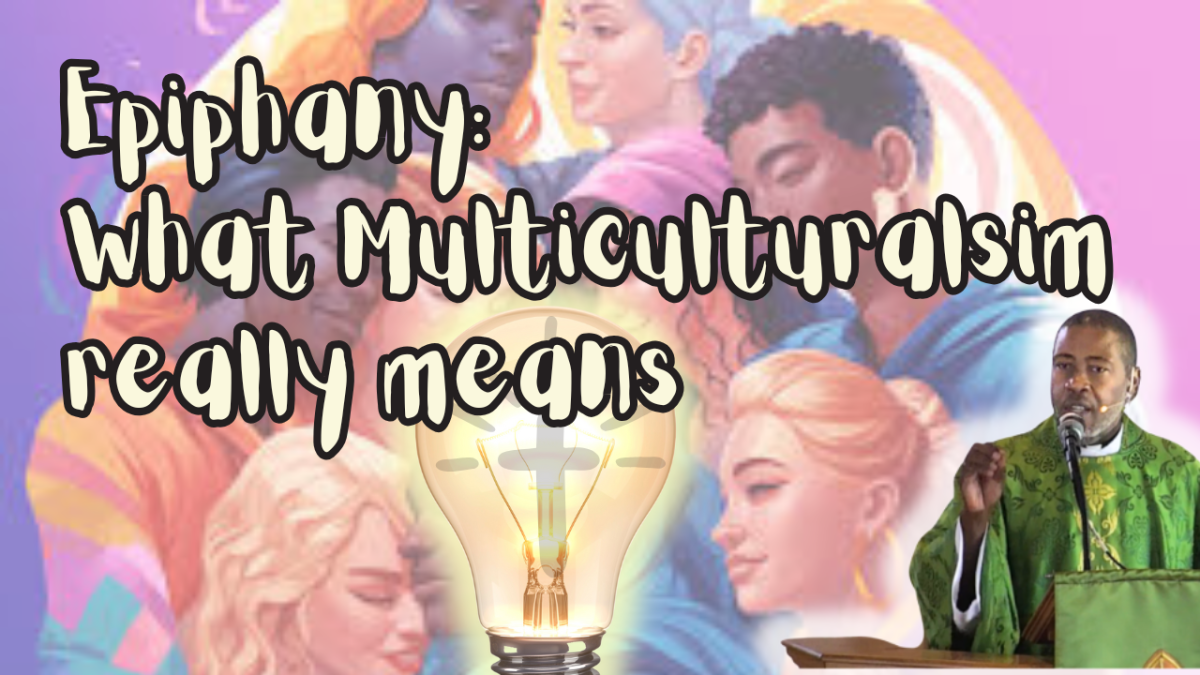 Friends, today I invite you to reflect on the profound lessons epiphany offers us, especially in the context of multiculturalism. Before we dive in, please ensure that any distractions, like cell phones, are set aside as we engage with these thoughts. Let us consider the words from the letter of Paul to the Ephesians, chapter three, verses five through six. Here, Paul speaks of a mystery once hidden, now revealed to his holy apostles and prophets by the Spirit. This mystery is that the gentiles have become fellow heirs, members of the same body, and sharers in the promise in Christ Jesus through the gospel.
Friends, today I invite you to reflect on the profound lessons epiphany offers us, especially in the context of multiculturalism. Before we dive in, please ensure that any distractions, like cell phones, are set aside as we engage with these thoughts. Let us consider the words from the letter of Paul to the Ephesians, chapter three, verses five through six. Here, Paul speaks of a mystery once hidden, now revealed to his holy apostles and prophets by the Spirit. This mystery is that the gentiles have become fellow heirs, members of the same body, and sharers in the promise in Christ Jesus through the gospel.
The Experiment of Multiculturalism
Our modern western world, including Canada, has embarked on an experiment of multiculturalism. This experiment aims to foster a society where various cultures coexist alongside a more dominant culture. While this ideal promotes unity and diversity, it remains flawed. A primary flaw lies in the coexistence without authentic dialogue and interaction between different cultures, reducing real unity to mere neighborly tolerance. As witnessed in Canada, cultural enclaves often respond more to events in their countries of origin than align with Canadian values, indicating a disconnect.
The Issue of Sin and Its Consequences
Another significant flaw in this multicultural endeavor is the assumption that humanity can determine what brings well-being without addressing the problem of sin. The pursuit of unity is noble, but it can fall short if it overlooks the fundamental human condition of sin. How might we reconsider this yearning for oneness in light of the epiphany we commemorate today?
The Revelation of Christ’s Promises
Epiphany reminds us that the promises of Christ are not merely for intellectual consideration but are deeply rooted in human history and demand a heartfelt response. Jesus’s life claims every life, urging us to answer the pivotal question: Who do you say Christ is? This answer determines our response through the ages. The gospel’s universal scope declares Jesus as the light of the world — a beacon for all, beyond specific religious or cultural identities.
The Symbolism of the Wise Men
The wise men’s journey during Herod’s reign, as they followed a star to honor the newborn king of the Jews, symbolizes the inclusion of the gentiles—of you and me. Their homage to Christ challenges us to acknowledge that we, once considered far off, are drawn near by His light. This narrative urges us to recognize the mystery now revealed in Christ: the unity of all believers, transcending cultural and ethnic boundaries.
Subverting Cultural Norms
Historically, human cultures have often shaped their conception of divinity in ways that privilege their own heritage. This was evident among the Jewish people of Jesus’s time. Yet Christ subverts these cultural limitations, affirming that God’s call transcends any one culture or ethnicity. Jesus represents the eternal Son of God, undermining his own Jewish cultural claims and giving us all equal standing before God.
A Personal Claim on Our Lives
In Christ, God comes to us, fulfilling promises that Israel would be a light to the nations. Jesus’s life commands us to recognize its importance across all human experiences. Recognizing this truth is a transformative epiphany, altering our perception and engagement with the world around us. This transformation is reflected in how we see ourselves, fundamentally shifting our interactions and guiding us towards a deeper understanding of what it means to truly follow Christ.
Unpacking the Light of Christ
Like the wise men, we spend our lives unpacking the profound significance of the light of Christ’s life. The gifts they offered were just the beginning; our journey involves continually embracing the transformative impact of this light. To be drawn to Christ’s light is to be sanctified, defining our culture and heritage not as prisons but as gifts that yield central place to Christ.
The Twofold Nature of Epiphany
Ultimately, the message of epiphany is universal. It reminds us that God’s manifestation has an undeniable claim on all human lives. This claim is both a personal challenge and a gracious promise — one that calls us to recognize Christ as central to our existence and our response to the world around us. As we acknowledge and accept this claim, we find freedom and unity in becoming fellow heirs and members of the body of Christ. Amen.
